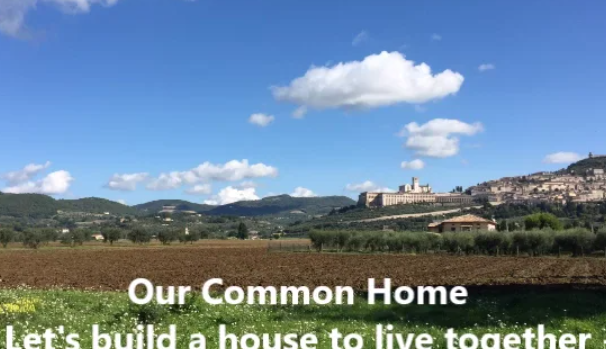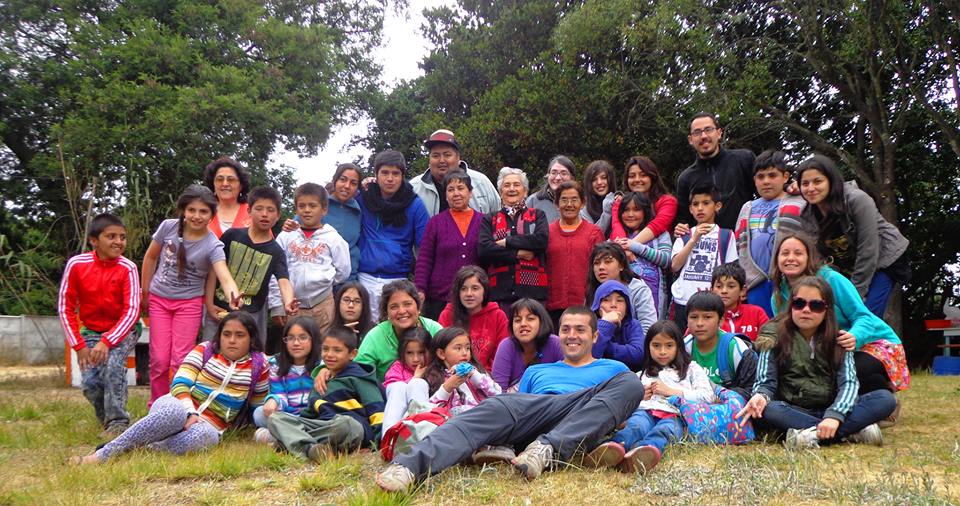I am very grateful to have been a “Child of the Sacred Heart.” I grew up in the Sacred Heart School of Japan from elementary school to university. In 1992, when I was in 3rd year high school in Obayashi Sacred Heart School, I was given the precious opportunity to join the exposure program to the Philippines. It is no exaggeration to say that the direction of my life was changed by that experience.
In 2003, after six years of working in a company in Japan, I resigned from my work and decided to serve in the Philippines. I was either brave or stupid in taking that step because at that time I had neither professional skills nor the language to be of service to the people. I thank God for opening several opportunities through work and studies and the help of many people, especially the RSCJ. In 2004 to 2007 while studying in the Asian Social Institute and working in the St. Madeleine Sophie Foundation (SMSF), I became involved in the Sacred Heart exposure program as a member of the local staff. Later in 2010-2013, I participated in the program as a teacher of Obayashi Sacred Heart School.
I am not the only graduate of the Sacred Heart School who has been changed by this program. Many of our past participants have taken on the value of service and have made life-changing decisions even as they pursued their different professions: as doctors or experts in public health, as diplomats or social workers, as staff in international non-government organizations or teachers in Japan, and so on. There are also several who set up an association named “Halo-Halo-Kai” that continues to support SMSF through bazaars and concerts. So strong is its impact that even alumni who did not participate in the program have become inspired and are now joining the different activities. These are a few examples to show the transformative dimension of the exposure program, which was began by the Sacred Heart School in Obayashi in 1985.
To date, a total of 450 participants have undergone the program. After an extensive preparation, which includes learning English, some understanding of the history and socio-cultural realities of the Philippines, the group of selected students and some teachers is sent to the Philippines, where they stay for eleven days. Through team building, visits to a variety of places, homestay with Filipino families, and, engagement with the SMSF base-community, the students are able to interact with local people, particularly the disadvantaged. They also go through processing of experiences, personal reflection, group sharing, and prayer.

In my interviews with participants, I discovered convergences in the way they expressed the impact of the exposure program:
-
Self-transformative. It helped them view and review their relations, attitudes towards life, and perspectives, as well as their faith in God. It opened new possibilities for their future. Later in life, they look back to this as their inspiration to work towards achieving a better life for others and for the global community.
-
We-Experience. They were able to build new relationships, identify shared values, and create a “we-experience” among them and with the Filipinos. Prejudices and stereotypes were broken, and from being “strangers” they became “magkaibigan” (friends). Although interactions were brief and they may not see each other again, this “we-experience” remains in their hearts.

-
New forms of awareness: of the self, reality and social responsibility, the environment, and God. They saw harsh Philippine realities with their own eyes and had actual encounters with the poor, disabled, abandoned, as well as victims of violence. They learned that poverty is not just economic deprivation, but also an experience of isolation, of being disregarded, of powerlessness, and of discrimination.
-
Being touched. They were touched by the hospitality and the smiles of the people, especially the poor. Despite the poverty, they found hope, richness of heart, genuine happiness, and meaning of life. The attitude of the poor, who relied totally on God, deepened their own faith.

-
Questions. They struggled with the contradiction between their privileged lives in Japan and the hard realities of the poor, the gap between the rich and the poor, and the co-existence of poverty and richness of hearts. While the answers did not come during the exposure program, they sought their meaning and allowed these to affect the choices that they were to make in the future.

Before ending this reflection, I would like to express a deep gratitude to the Sisters of Society of the Sacred Heart of Jesus for all their support during my studies and for giving me the opportunity to live with, to work with, and to have my heart “touched” by disadvantaged persons and communities in the Philippines.
Maraming Salamat po. (Thank you very much).
Saiko Kobari
Saiko Kobari did this phenomenological study in 2007 as one of the major requirements for a degree of Masters in Social Services and Development at the Asian Social Institute in Manila. Now back in Japan, she continues to be an active volunteer of the St. Madeleine Sophie Foundation (SMSF), coming regularly to the Philippines to help in different SMSF activities. What she once did as a study has now become through the years an even deeper reality in her life.
Section |Living Our Mission
Province |Japan|Philippines


